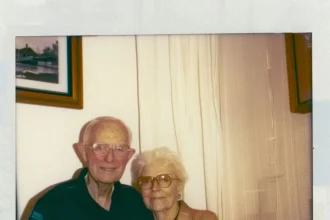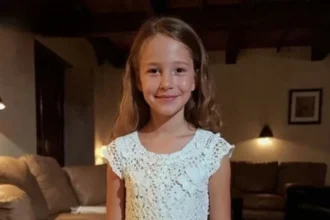When our son was born, I should have felt only joy — the pure, trembling kind that comes with holding something that is both you and the person you love most. But instead, a seed of doubt had already taken root in my mind. It grew in silence, watered by insecurity and the poisonous whispers of fear. My wife had always been faithful, tender, and strong, yet after months of sleepless nights and distance between us, I began to wonder. When I asked for a paternity test, she didn’t cry, didn’t scream — she just looked at me with a faint smirk and said, “And what if he’s not?” I mistook her shock for arrogance. I told her coldly, “Then I’ll divorce you. I won’t raise another man’s child.”
The results arrived a week later: Not the father. I remember how she stood motionless, eyes hollow, as if something inside her had quietly died. I left the next morning, fueled by a sense of self-righteous betrayal. I told myself I was the victim, that I was sparing myself humiliation. What I didn’t see — or refused to — was the wreckage I left behind: a woman stripped of her dignity and a newborn boy stripped of his father. I signed the divorce papers without looking back. For three years, I buried myself in work, in meaningless distractions, in the illusion that I had done the right thing.
Then, by chance, I met an old family friend at a café. His expression darkened when he saw me. “Why did you leave them, Daniel?” he asked. When I explained, he fell silent, shaking his head slowly. He told me what my wife had never said: that the test had been wrong — a rare lab mix-up, later discovered when she tried to prove the truth. She had sent a second sample, hoping I’d one day care enough to ask again. But by then, she’d given up. She hadn’t smirked out of defiance — she had been stunned, wounded that I could doubt her at all. My heart pounded in my chest as I ordered a new test immediately. When the envelope came, I tore it open with trembling hands. The words blurred through my tears: Probability of paternity — 99.999%.
I was his father. I had always been his father. The realization hit like lightning — bright, violent, irreversible. I had torn apart my own family because I couldn’t trust love to be stronger than fear. I tried to reach out, to apologize, to explain, but some wounds turn to walls. She had moved on, building a small, peaceful world where my shadow didn’t reach. One afternoon, I saw them from afar — my son laughing as he held her hand, his smile wide and free. I stood there, unseen, crushed beneath the weight of my mistake. Love is not destroyed by lies, but by the absence of faith. I had demanded proof of what should have been sacred. Now I live with the lesson that doubt can echo louder than truth — and that forgiveness, when lost, is harder to reclaim than love itself.



